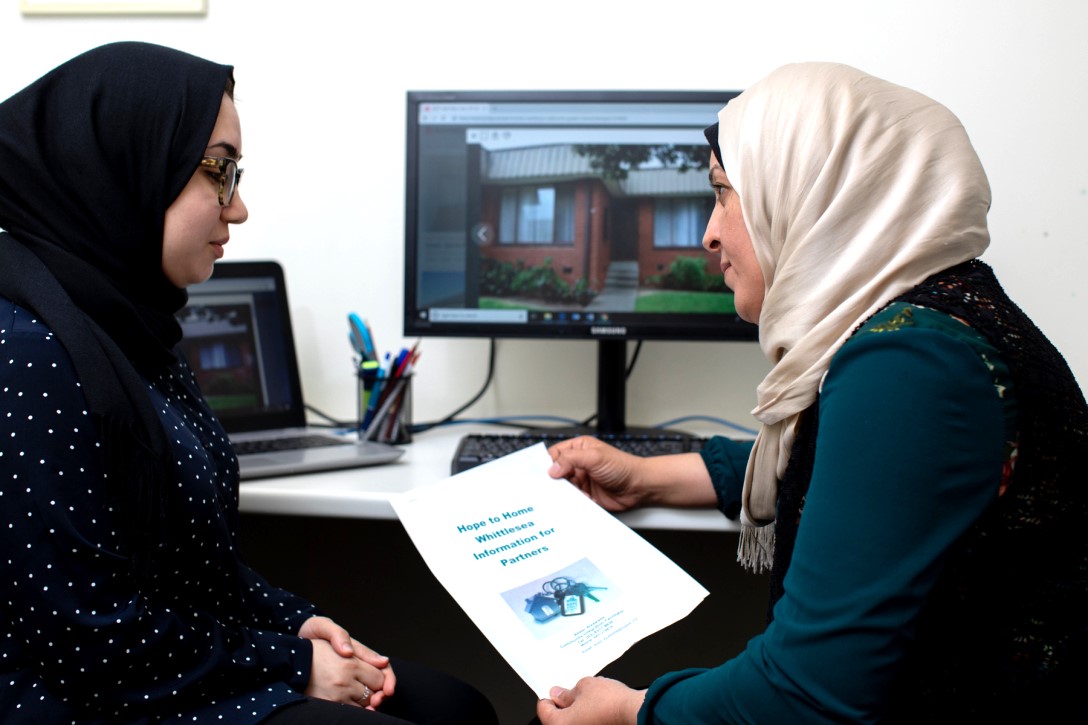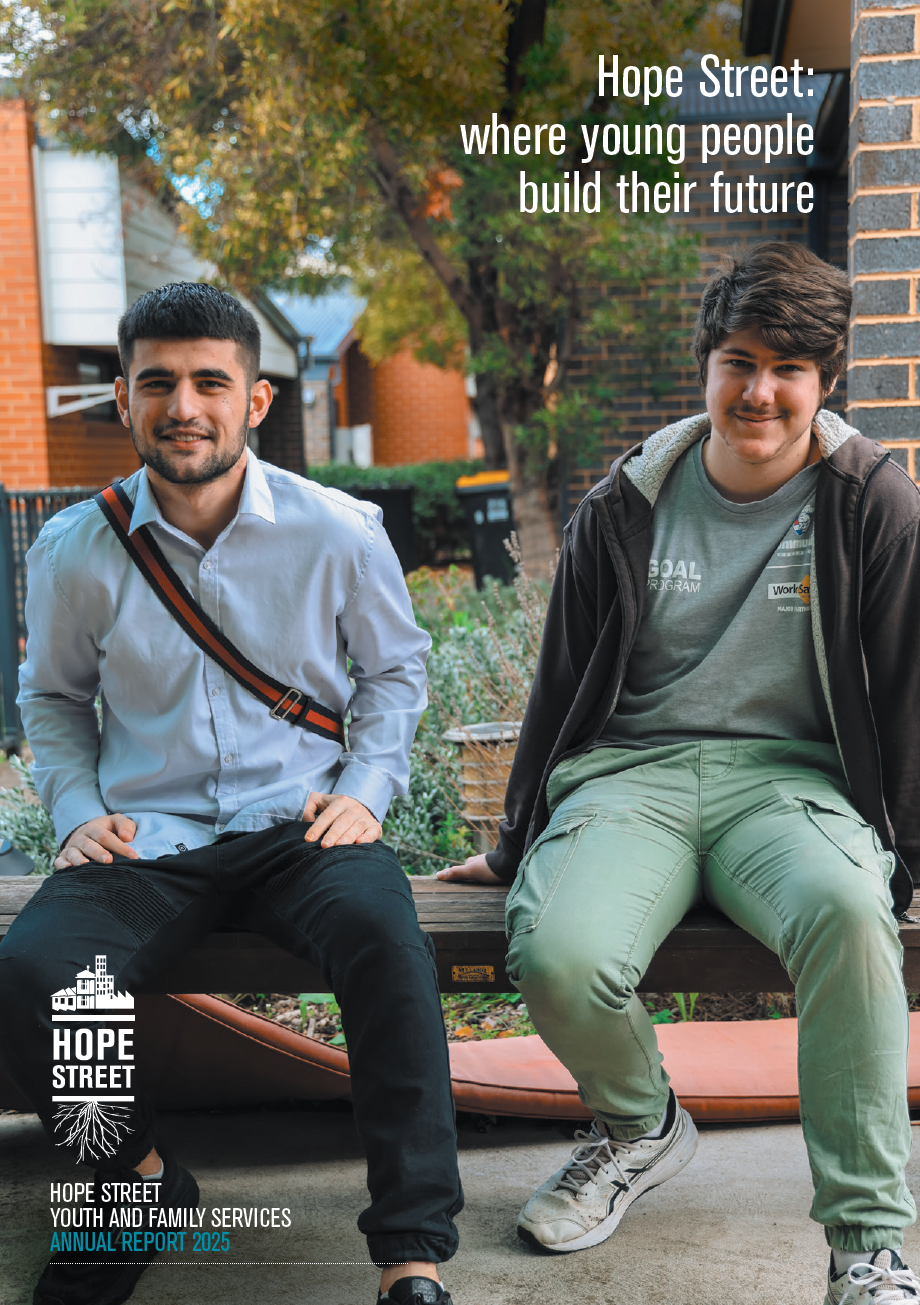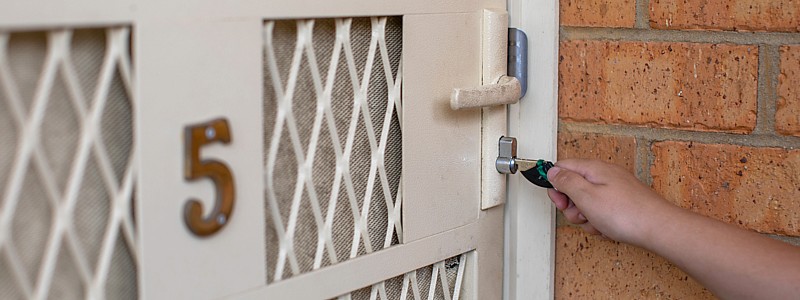Housing as a Human Right – Hope Street embraces crossbench advocacy on housing.
“Housing as a human right needs to be adequately addressed by an investment in the social infrastructure and service delivery that protects Australia’s largest cohort, young people and young families, experiencing homelessness.” Sue Scott, Hope Street Operation Manager.
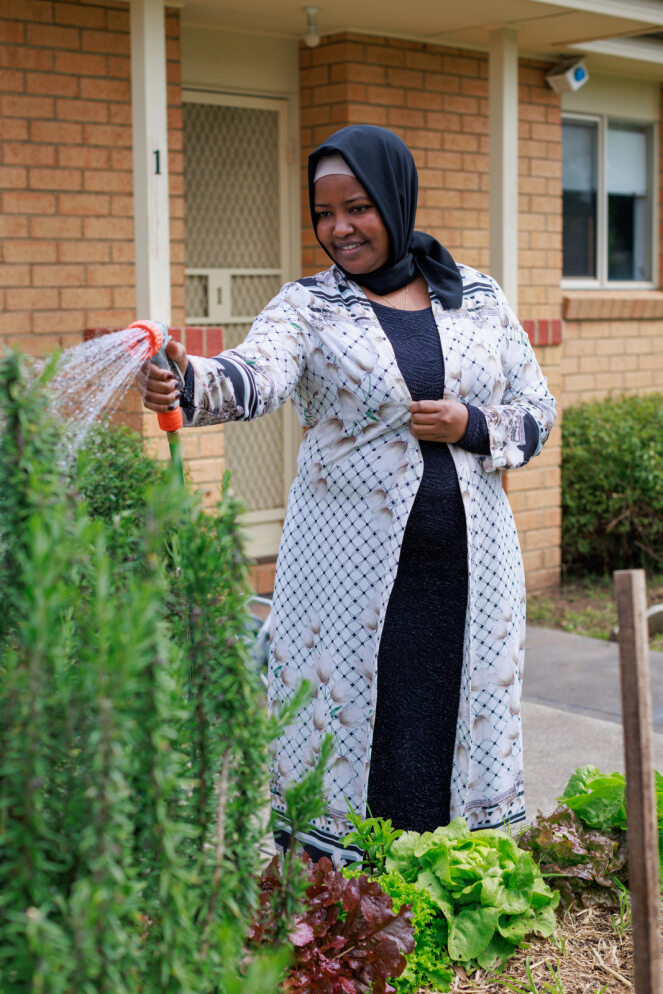
Australia is grappling with the cost of homelessness in emergency rooms and in the justice and welfare systems. Youth homelessness is at crisis levels in Australia. 122,494 people were estimated to be experiencing homelessness on Census night in 2021. Nearly a quarter (23.0%) of all people experiencing homelessness were aged from 12 to 24 years (28,204 people). 14% of homeless people in Australia are children under 12. 22% of the young people that access Hope Street Youth and Family Services according to the 2023 Annual Report have experienced family violence. Aboriginal and Torres Strait Island young people are 10x more likely to present to homelessness services. Being homeless and young has life-long consequences.
Sleeping in cars. Couch surfing. Rough sleeping. Living in overcrowded dwellings. Staying in environments that are unsafe and puts young people at risk of exploitation and abuse. This is the reality for Australia’s most vulnerable children and young people. Children and young people experiencing homelessness have barriers to accessing basic needs such as food, hygiene, healthcare, education, community and cultural connection, safety and comfort which further disadvantages them.
As Chair of the Human Rights Committee, Labor MP Josh Burns, has been a strong advocate and ally in terms of providing a platform for young people who have a lived experience of homelessness. A call from the Australian Human Rights Commission has detailed a list of rights that should receive legislative protection.
The Human Rights Act recently brought forth by Josh Burns MP is an opportunity for Australia to uphold treaty obligations that housing is a human right. The Housing Australia Future Fund has not allocated or outlined specific funding for young people and children to protect them from experiencing homelessness. Not recognising youth homelessness as a cohort shortchanges the states and territories that are currently funding overwhelmed services.
The upcoming bill - the National Housing and Homelessness Plan put forth by Kylea Tink MP and Senator David Pocock - recognises that housing is a human right. The way forward for children and youth is a national framework specific for housing young people and children to protect their rights and secure a better future for these vulnerable Australians. This should include wrap-around service support to help them achieve independence in a trauma informed setting.
Australia has Treaty obligations on the Convention on the Rights of the Child to uphold housing as a fundamental human right and protect children and young people from experiencing homelessness.
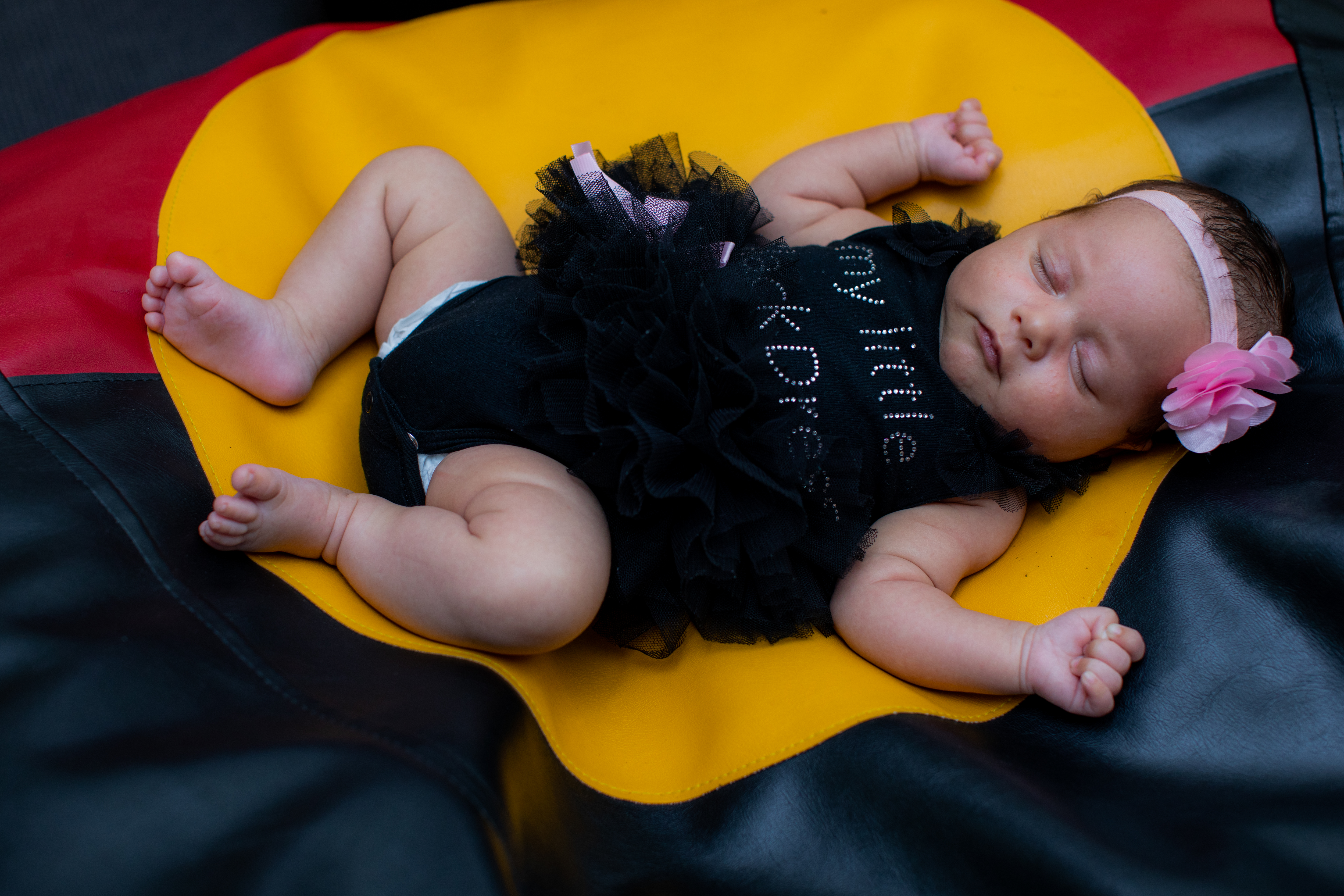
The social and economic cost of not upholding this right is detrimental to our nation. Being homeless as a young person creates significant barriers to accessing their rights to safety, education, employment, healthcare and connection to community. Furthermore, it places significant ongoing costs on the community. The bill would require current and future governments to develop, implement and maintain a 10-year National Housing and Homelessness Plan in line with legislated objectives, including improving housing supply, affordability and ending homelessness. At its heart is the goal of ensuring everyone in Australia has an adequate home. Recognising “the right to adequate housing is a fundamental human right” is one objective of the law.
Children and young people should not be ignored. A youth specific framework to tackle homelessness is needed. It should recognise young people and children as requiring the support that protects and empowers them to become functioning members of society. It should uphold their human right to housing and education. For young First Nations people it must include self-determination and connection to culture.
Currently there is no Government campaign that provides information on how to access homelessness services for vulnerable young people and children. Children and young people who find themselves homeless as a result of family violence, abuse and or neglect have limited resources to access the housing and support they need.
The cost of homelessness and the impact it has on tens of thousands of young Australians – the future of this nation – is devastating and can be resolved by legislative reform that protects their rights to housing. Communities across Australia need the Federal Government to act on this. The social infrastructure of Australia is its people, and the potential of its young people is at serious risk due to a lack of safe and secure housing options
Housing is a fundamental right which the Australian government has ratified under the Convention on the Rights of the Child and must honour it – as our highest court, the Teoh Case reaffirmed this in 1994. The Teoh case is still in operation, and it is still binding for Australian Government to uphold under the Convention on the Rights of the Child. And yet, across Australia, child and youth homelessness is widespread and growing.
There is an opportunity now for Australia to intervene effectively and early to ensure that children and young people can access safe and secure housing through a responsive social and community housing system. There is now an opportunity and an obligation for Australia to intervene effectively.
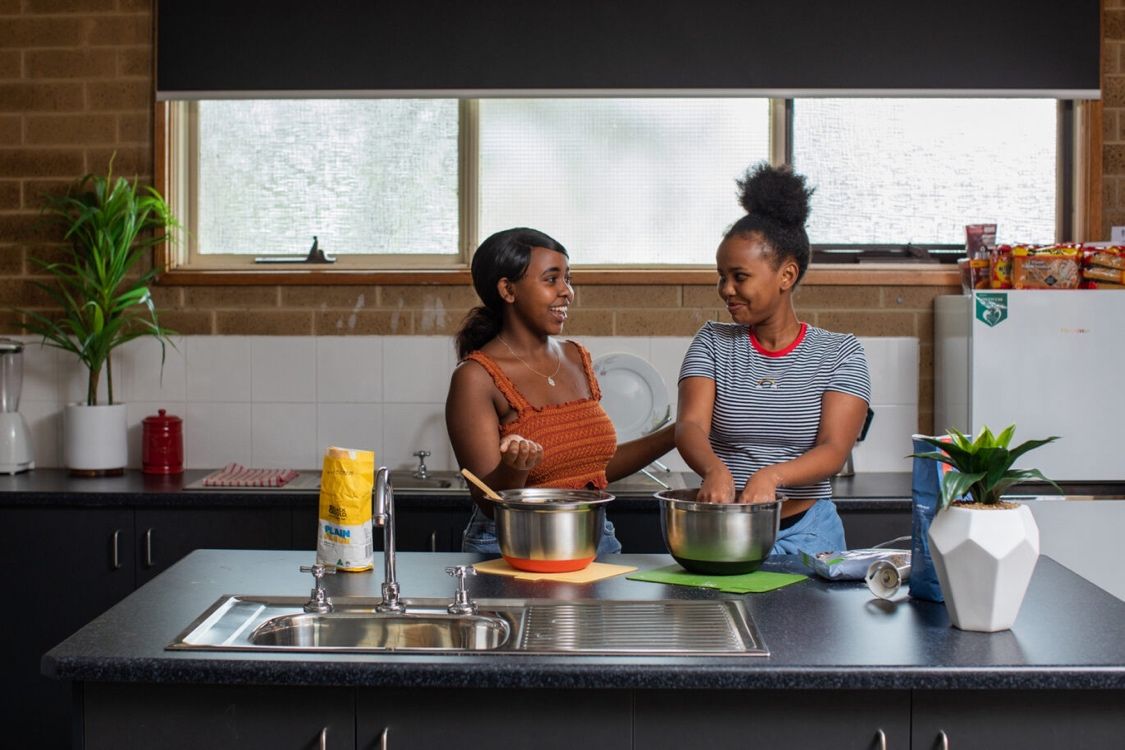
Such a response, if enshrined in legislation as a right to housing, would ensure that young people and children experiencing homelessness can access the wrap-around support they need to maintain their education, connection to community and opportunities to participate in learning, training and eventually a secure workplace.
Without a safe home, young people face barriers to access their right to an education. Being homeless makes it difficult to find or maintain employment and training. The pathway to a better life is hindered with barriers. Without a secure home, the capacity to navigate primary healthcare services and find a suitable General Practitioner (GP) becomes extremely difficult. As a result, and often due to transience, children and young people are unable to find mental health support or suitable counselling. Obtaining services like Centrelink and the NDIS is equally compromised.
In the words of former Human Rights Commissioner and long-term advocate for young people experiencing homelessness, Professor Burdekin, ‘homelessness is primarily and fundamentally an issue of human rights.’ Federal reform to address housing as a human right has been advocated by Professor Burdekin and Hope Street Youth and Family Services (Hope Street) Chief Executive Officer, Donna Bennett, in the latest youth-specific edition of Parity magazine.
Underpinned by this call to action is the practical experience of Hope Street’s service delivery in responding to child and youth homelessness. The bill provides an opportunity for the Australian Government to learn from practical frontline experts on child and youth homelessness and how to develop solutions to this national crisis.
The Hope Street’s response to youth homelessness is to recognise the integration of wrap-around supports that young people and their children need to go from surviving to thriving. Building a sense of community connection, security, comfort and safety, alongside practical goals in a therapeutic setting empowers young people to access community services and plan their future.
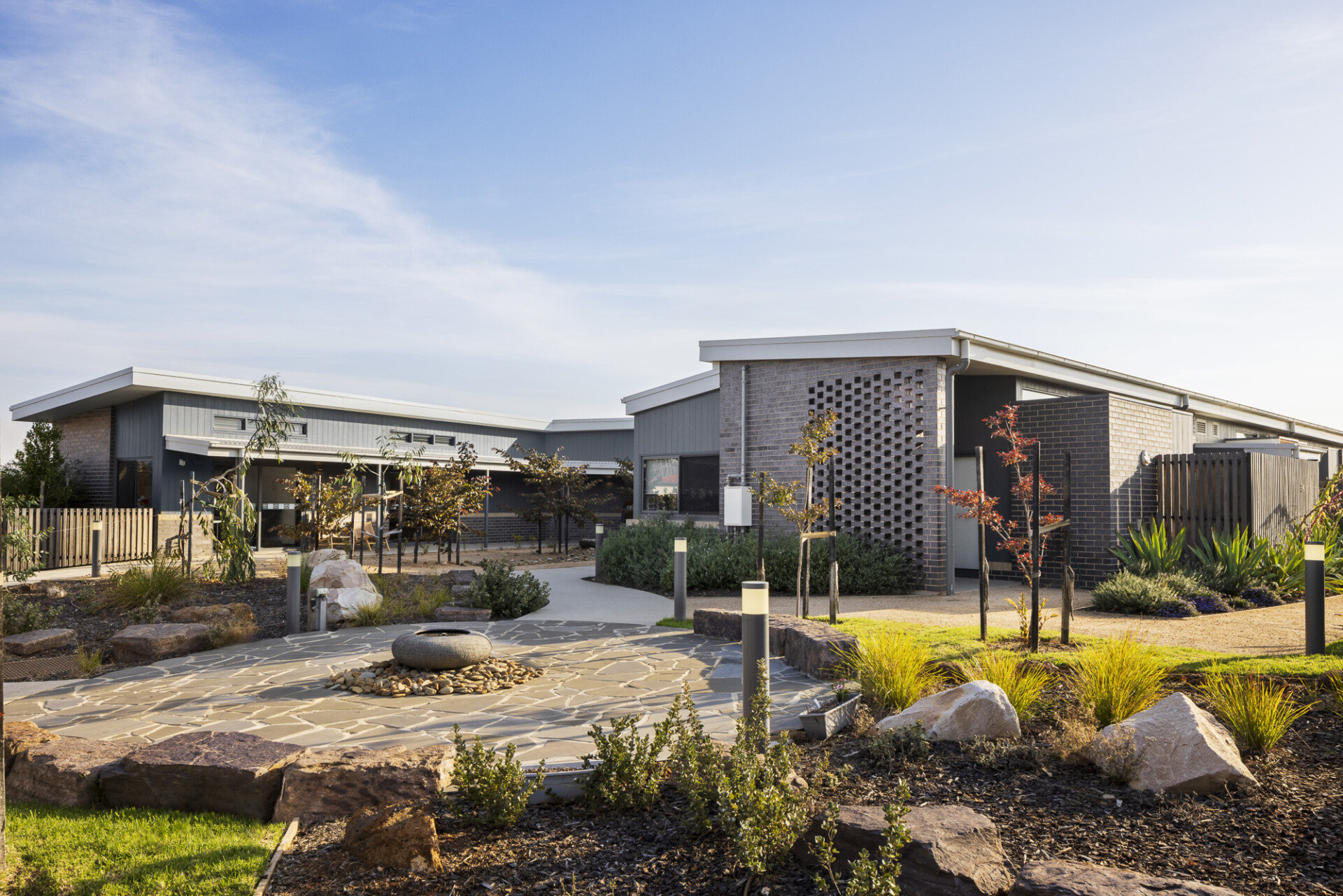
As a continuum of services, Hope Street provide assertive outreach programs for intervention to those at risk of or experiencing homelessness, as well as crisis accommodation and transitional housing options all with wrap-around services.
For young people that enter crisis accommodation and transitional housing at Hope Street they are supported with 5 key domains: education, employment and training; healthcare and mental health counselling; tenancy management and budgeting; independent living skills; and community connection.
These include, for example, support to develop core skills in accessing social services, including Centrelink as well as developing parenting skills, a driver's licence, a bulk billing GP, tenancy management, budgeting, rental applications and developing goals towards independence such as employment, training and education and navigating primary healthcare providers. Building a sense of community connection, security, comfort and safety, alongside practical goals in a therapeutic setting empowers young people to access community services and plan their future. This tailored service delivery is trauma informed and matches the obligations we are committed to uphold the foundation of the Convention on the Rights of the Child.
Hope Street has the resources to ensure that best practice approaches to youth and child homelessness can be advocated to all levels of government. Hope Street will continue to advocate for young people and children experiencing homelessness, as well as provide nation leading accommodation and services to uphold housing as a human right.
Despite our treaty commitments, child and youth homelessness is widespread. The opportunity is now to intervene effectively. Investing in early intervention to prevent homelessness from reoccurring will fundamentally be more cost-effective than having to fund the myriads of emergency services that pick up the pieces.
In recent years the Ian Potter Foundation vindicates the finding in the Burdekin and subsequent inquiries to demonstrate that the social return on investing in youth housing delivers an economic return of $3 for every $1 dollar invested. This has been proven time and again that early intervention is much more cost effective than picking up the pieces. The human rights violations and the economic impact on young people and children in Australia is a national disgrace.
Given its wealth surely Australia cannot afford to sacrifice thousands of young people at the altar of a current housing system that is clearly failing the future of the nation. A fair go for those that are vulnerable in our community is arguably part of the intrinsic values of Australian society.
